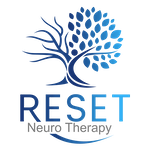RESET - Booklet - Manual / Resource - Page 28

Why Multiple Treatments Are Needed
With Therapy Collaboration?
For the last two decades, researchers at Yale have led ketamine research by experimenting with using subanesthetic doses of ketamine delivered intravenously in controlled clinic
settings for patients with severe depression who have not improved with standard antidepressant treatments. The results have been dramatic: In several studies, more than half of
participants show a significant decrease in depression symptoms after just 24 hours.
These are patients who felt no meaningful improvement on other antidepressant medications.
Most important for people to know, however, is that ketamine needs to be part of a more
comprehensive treatment plan for depression. “Patients will call me up and say they don’t
want any other medication or psychotherapy, they just want ketamine, and I have to explain to them that it is very unlikely that a single dose, or even several doses of ketamine
alone, will cure their depression,” says Dr. Sanacora. Instead, he explains, “I tell them it
may provide rapid benefits that can be sustained with comprehensive treatment plans
that could include ongoing treatments with ketamine. Additionally, it appears to help facilitate the creation new neural pathways that can help them develop resiliency and protect against the return of the depression.”
This is why Dr. Sanacora believes that ketamine may be most eective when combined
with cognitive behavioral therapy (CBT). CBT is a type of psychotherapy that helps patients learn more productive attitudes and behaviors. -By Jennifer Chen March 21, 2019
-https://www.yalemedicine.org/stories/ketamine-depression/